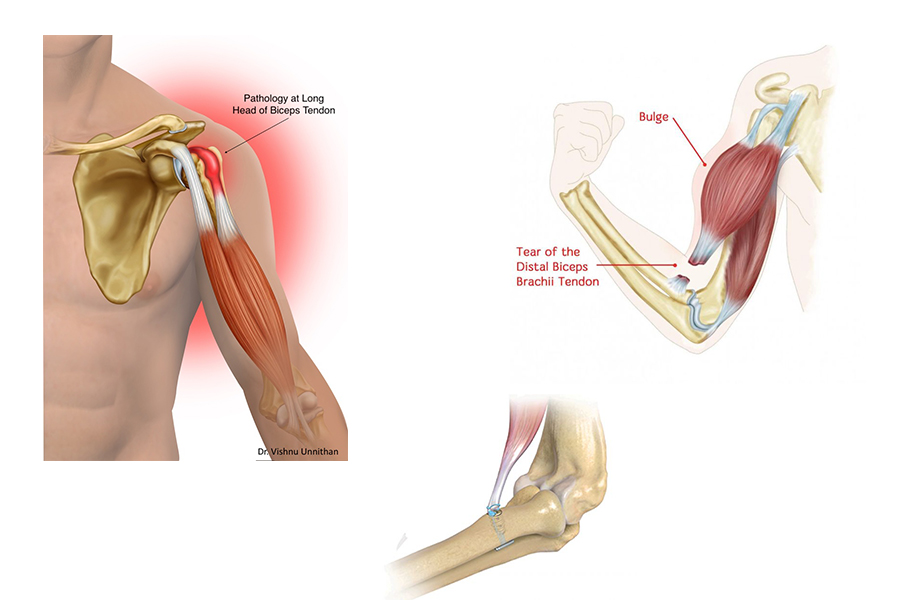- +91 7012749886
- [email protected]

A biceps tendon injury can refer to damage or strain to the tendons associated with the biceps muscle in the shoulder joint, upper arm or near the elbow joint.
The biceps muscle has two tendons, the long head, and the short head, which connect the muscle to bones in the shoulder and elbow. Injuries to these tendons can occur in different ways and can be categorized into two main types:
Biceps Tendonitis: This condition involves inflammation of the biceps tendon. It can result from overuse, repetitive movements, or sudden strain on the tendon. Common symptoms of biceps tendonitis include pain in the front of the shoulder and upper arm, especially when lifting or reaching overhead. Rest, ice, physical therapy, and anti-inflammatory medications are often used to manage this condition. Certain people with advanced biceps tendinopathy might require surgical intervention.
Biceps Tendon Rupture: A biceps tendon rupture occurs when the tendon partially or completely tears. This can happen due to sudden trauma, such as heavy lifting or a fall, or it can be a result of gradual wear and tear over time. A complete rupture typically causes a "Popeye" deformity in the arm, where the biceps muscle bunches up near the middle of the arm. Depending on the location of the tendon rupture, the ruptures are divided into:
Treatment for biceps tendon injuries may involve:
It's essential to consult us or another healthcare professional, such as an orthopedic surgeon or a sports medicine specialist, if you suspect a biceps tendon injury. We perform a thorough evaluation, including imaging studies like Ultrasound / MRI, to determine the extent of the injury and recommend the most appropriate treatment plan tailored to your specific condition. Early diagnosis and intervention can help improve outcomes and prevent further complications.